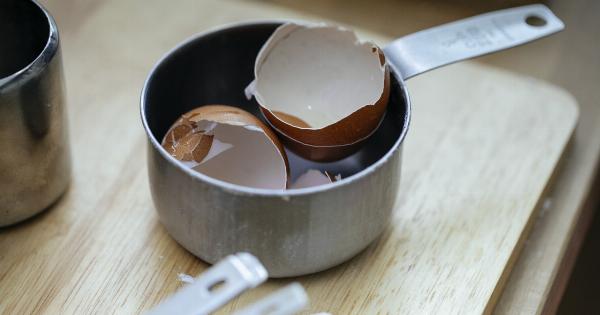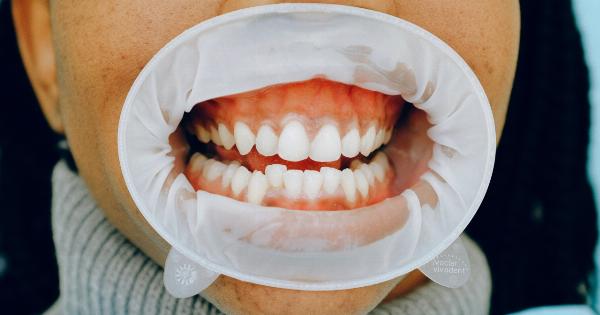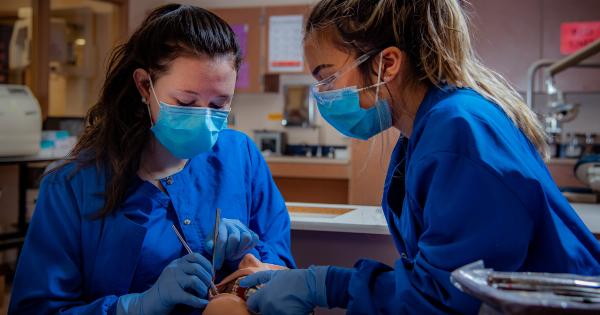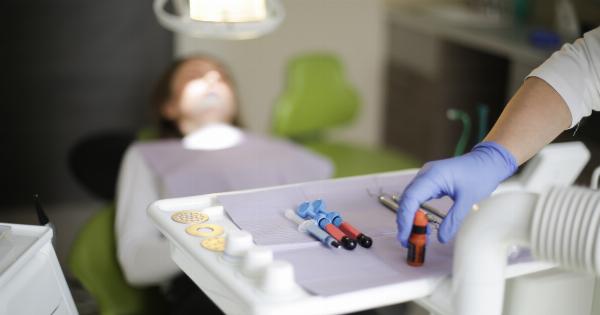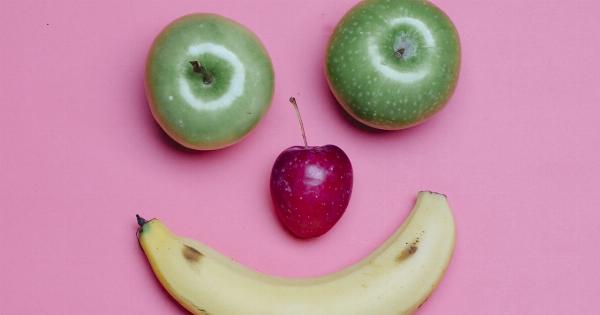When it comes to oral health, we all know that brushing, flossing, and regular dental check-ups are imperative for maintaining a sparkling smile.
However, there are certain habits or actions that can wreak havoc on your teeth, leading to decay, discoloration, and gum disease. In this article, we will discuss some of the worst things you can do for your teeth and provide you with valuable information on how to avoid them.
1. Neglecting Regular Oral Hygiene Practices
This may seem obvious, but neglecting regular oral hygiene practices is one of the most detrimental things you can do to your teeth.
Brushing your teeth twice a day and flossing at least once a day are essential for removing plaque and bacteria, preventing cavities and gum disease.
2. Using Your Teeth as Tools
We’ve all been guilty of using our teeth to crack open a bottle cap or tear open a stubborn plastic package. However, using your teeth as tools can cause cracks, chips, or even fractures in your teeth.
Remember, your teeth are meant for chewing food, not as makeshift tools.
3. Consuming Sugary and Acidic Foods
Regularly consuming sugary and acidic foods can lead to tooth decay and erosion. Sugary foods provide a breeding ground for harmful bacteria in your mouth, while acidic foods can erode the protective enamel on your teeth.
Limit your consumption of sugary and acidic foods, and if you do indulge, make sure to brush your teeth afterward.
4. Smoking and Tobacco Use
Smoking and tobacco use not only stain your teeth, but they also increase your risk of gum disease, oral cancer, and other severe oral health issues.
Quitting smoking and avoiding tobacco products can significantly improve your oral health and overall well-being.
5. Grinding or Clenching Your Teeth
Bruxism, also known as teeth grinding or clenching, can lead to tooth sensitivity, jaw pain, and even tooth loss. This habit often occurs during sleep or as a response to stress.
If you suspect that you grind or clench your teeth, consult your dentist who can recommend a custom mouthguard to protect your teeth.
6. Neglecting Dental Visits
Regular dental visits are crucial for maintaining good oral health. Your dentist can detect any early signs of dental problems, perform professional cleaning to remove stubborn plaque and tartar, and provide necessary treatments or recommendations.
Make sure you schedule regular dental check-ups at least twice a year.
7. Using a Toothbrush with Hard Bristles
Using a toothbrush with hard bristles may seem like a good idea for thorough cleaning. However, it can actually cause gum irritation and wear down the enamel on your teeth.
Opt for a toothbrush with soft or medium bristles, and remember to replace it every three to four months or as soon as the bristles become frayed.
8. Ignoring Dental Pain or Problems
Persistent dental pain or any other oral problems should never be ignored. Delaying a visit to the dentist can worsen the condition and may require more extensive treatments.
If you experience any dental discomfort, make an appointment with your dentist for a proper evaluation and treatment.
9. Chewing on Ice or Using Your Teeth as Bottle Openers
Chewing on ice or using your teeth as makeshift bottle openers can cause chips, cracks, or fractures in your teeth. These habits can lead to tooth sensitivity and require costly dental repairs.
Always use appropriate tools and avoid using your teeth for anything other than eating.
10. Overconsumption of Alcohol
Excessive alcohol consumption can have detrimental effects on your oral health. Alcohol can dry out your mouth, reducing saliva production and increasing the risk of tooth decay and gum disease. It can also stain your teeth over time.
Practice moderation and ensure you maintain good oral hygiene habits.
Conclusion
By avoiding the worst things you can do for your teeth, you can maintain a healthy and beautiful smile for a lifetime.
Remember to practice regular oral hygiene, avoid harmful habits, visit your dentist regularly, and be mindful of the impact certain foods and substances can have on your oral health. Taking care of your teeth is an investment in your overall well-being.



